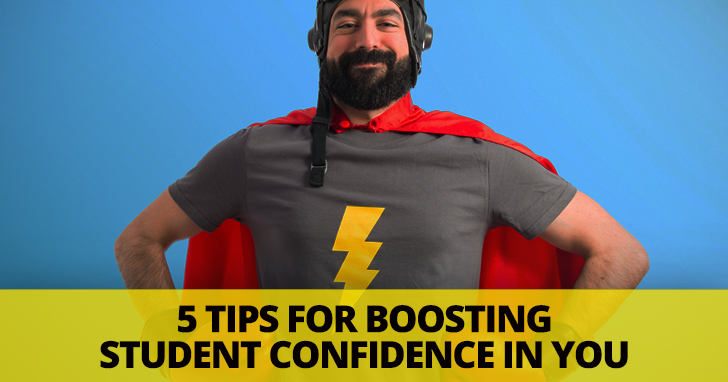Be a Better Leader: 4 Things Your Students Need to Know About You


At least, you want to be. You’re their teacher, after all. You’re the one that is supposed to know all the answers. The one that gives directions. The one who is fearlessly leading your faithful group of students along the road of language learning. Your students depend on YOU to help them reach their goals. Of course they should look up to you.
So how do you keep their confidence up when you might not have the most confidence in yourself? How do you ensure your students not only respect you but have confidence in you as their teacher? Here are some ideas for boosting your students’ confidence in you.
I know how difficult it can be when you get put on the spot with a question about the English language. If you’ve taught for any amount of time, you can probably pull most answers out of your memory without a blink. But there are always those unexpected questions that you have never heard before. That have never been covered in a grammar book. That you just don’t know how to answer. Times like that, it’s tough not to simply fake your way through an answer. Believe me, I’ve tried. You don’t want to look unknowledgeable in front of your students. You want them to have confidence in your teaching abilities. But making up an answer on the spot actually does more harm than good for giving your students confidence in you. The better policy by far is being honest with your students. Letting them know that you have never been asked that question before and you’ll have to do a little research before you can answer. By telling your students that you will get back to them – and then doing it – you will show them that you want to give them an honest answer to their questions even if it means a little homework on your part.
Sometimes, just answering a question or presenting a lesson isn’t enough. Students want more. If you can share the language science behind the language lesson, it will make your students more confident in you. One situation in which this comes into play is if you are teaching them something that contradicts something they have learned before or if what you are teaching goes against traditional, prescriptive grammar. When this is the case, be sure you can explain why your teaching is the right one. If you can support your explanation with science – psycholinguistics, second language acquisition facts, or the phonetic alphabet – even better. The science behind language learning shows you know what you are talking about, and it will make your students more inclined to believe that what you are teaching them is correct.
It’s easy to be slack in behavior or appearance when no one ever sees you but your students, but being professional in those areas can do a lot for boosting your students’ confidence in you. Make sure you are dressing professionally. Take a hint from your students, and make sure your dress is at least one level above theirs. Be on time for class, and end class on time. Have your materials organized and labeled so you don’t have to shuffle through papers looking for things during class. And return homework and tests quickly and with sufficient comments. All of these measures will make you appear professional, confident, and trustworthy, and that will give your students more confidence in you.
We all tend to think that humility is the best policy, but sharing your accomplishments with your students doesn’t make you a bad person. It actually boosts the respect and confidence they have in you. And while hanging your resume on the wall might not be the best way to share those accomplishments, you can certainly talk about what certifications you have, where you have taught, how long you have been teaching, and other personal accomplishments. Get to know you activities are a great time to do this. You can also use your personal documents as examples if you are teaching students how to write them. For example, bring in your resume or CV as an example when you are teaching your students how to write one. You aren’t tooting your own horn when you share your experience with your students. You are simply letting them know more about your professional qualifications and accomplishments. And that, in turn, will help them have more confidence in you.
Culture is something that ESL teachers should be continually aware of. Sometimes miscommunications can happen or students can misinterpret something you do or say simply because of a cultural conflict. What makes cultural conflicts so difficult to anticipate is culture is such an integral part of who we are that we often don’t even realize that is where the rub is coming from. If you are teaching overseas, make sure you research and respect the cultural values and beliefs of your students’ home country. Talk about culture often and openly in class, and don’t be afraid to ask your students about it when something confuses you or when you fear there may have been a cultural misunderstanding. It is easy to make cultural mistakes in body language, dress, and how you speak in class, so be sure to be as knowledgeable as possible about the culture in which you teach and make sure you respect it and adhere to it whenever possible.
You know your stuff. You are there for your students. But sometimes they need a little boost in the confidence department. When you present yourself professionally and honestly, show your knowledge and experience when it’s appropriate, your students will have a realistic picture of you as their teacher. And that realistic picture will be just what they need to have confidence in you.